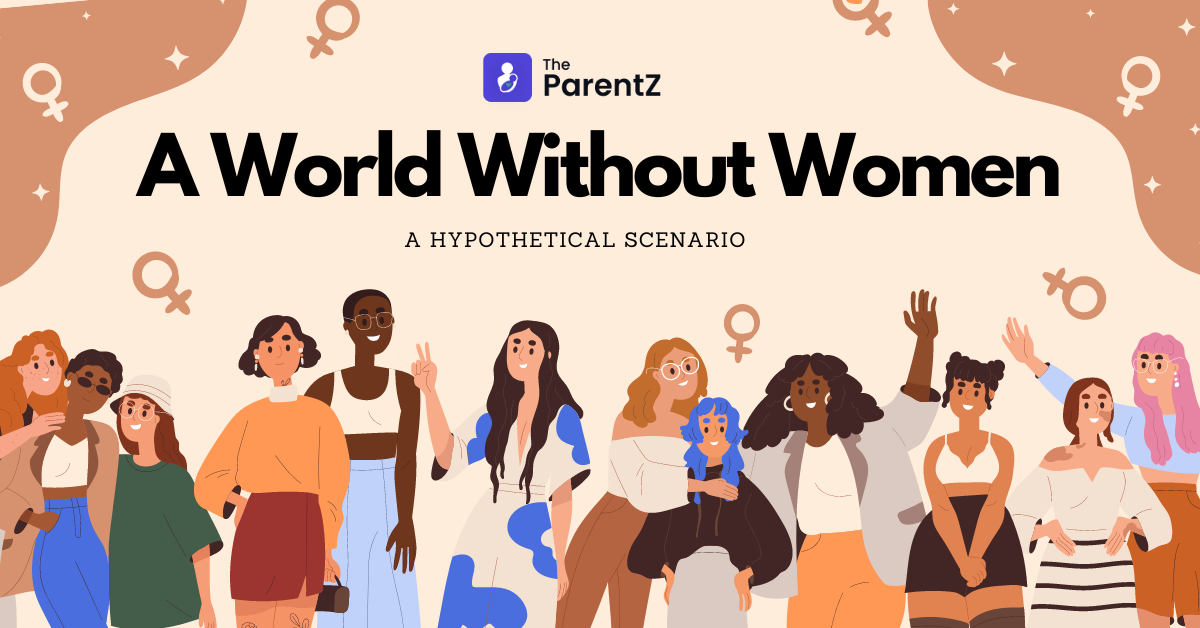Imagine a world suddenly devoid of women; it’s a scenario that seems like the plot of a dystopian novel, yet it invites us to consider the profound impacts on society. This exploration is not about the absence of a gender, but rather the absence of the diverse roles women play in our global tapestry. Using facts and data, we’ll examine the potential consequences on societal structures, culture, economy, progress, and social justice.
Fact 1: Societal Disruption
Women’s roles as mothers, sisters, and partners are irreplaceable. Their absence would lead to a breakdown in family dynamics and parenting structures. Without the nurturing and caregiving roles typically assumed by women, children’s upbringing and emotional development could suffer significantly.
Community building and engagement heavily rely on women’s involvement. They often serve as the glue that holds communities together, organizing events, fostering connections, and providing support networks. Without women, many social support systems and networks would vanish, leaving communities fragmented and disconnected.
As primary educators at home and in schools, women play a pivotal role in shaping future generations. Their absence would disrupt the education and development of children, impacting academic achievement, socialization, and emotional well-being.
Fact 2: Cultural Void
Women artists bring unique perspectives to the art world, enriching it with diverse narratives and expressions. Their absence would mean a significant reduction in the diversity of artistic expression and creativity, limiting the richness of cultural heritage.
Countless women authors have contributed to literature, offering insights into the human experience and challenging societal norms. Without their voices, the literary world would lose a wealth of insight, narrative depth, and representation of diverse experiences.
Women often serve as the keepers of cultural traditions, passing down customs, rituals, and stories from generation to generation. Their absence would lead to a loss of cultural continuity and heritage, eroding the fabric of society’s identity.
Fact 3: Economic Impact
Women make up a substantial portion of the labor force across various sectors, from healthcare to technology. Their sudden absence would create significant gaps in industries, affecting productivity, innovation, and service delivery.
Many businesses are owned and operated by women, contributing to economic growth and job creation. Without their entrepreneurial endeavors, the global market would suffer, leading to a loss of diversity and competition.
Women drive a significant portion of consumer spending, influencing purchasing decisions in various industries. Their absence would have ripple effects on the economy, affecting sectors reliant on consumer demand and discretionary spending.
Fact 4: Stalled Progress
Women in STEM fields are vital for innovation, bringing diverse perspectives and problem-solving approaches. Their absence would slow down technological advancements and scientific discoveries, hindering progress in critical areas such as healthcare, environmental sustainability, and information technology.
Women academics contribute significantly to research across disciplines, advancing knowledge and understanding in various fields. Without their contributions, academic progress would be hindered, limiting the scope and depth of scholarly inquiry.
Women leaders bring diverse perspectives to decision-making processes, advocating for inclusive policies and addressing societal challenges. Their absence would result in a lack of representation and potentially regressive policies, impeding progress towards gender equality and social justice.
Fact 5: Social Justice Setback
Women have historically led numerous social justice movements, advocating for equality, justice, and human rights. Without their activism, many rights and freedoms could be at risk, leaving marginalized communities vulnerable to discrimination and oppression.
Women policymakers play a crucial role in ensuring that legislation is inclusive and equitable, addressing systemic barriers and promoting social welfare. Their absence would affect the development of fair and just laws, perpetuating inequalities and injustices.
Grassroots movements often rely on the leadership and participation of women, mobilizing communities for collective action and change. Their absence would weaken the push for social justice at a grassroots level, stifling progress towards a more equitable society.
Conclusion
This hypothetical scenario underscores the indispensable role of women in all aspects of life. Their absence would not just be a loss of half the world’s population, but a loss of half of the world’s potential.
As we reflect on this, it becomes clear that gender equality is not just a moral imperative but a necessity for a balanced and thriving world. Recognizing and valuing the contributions of women is essential for creating a more inclusive, equitable, and prosperous society for all.








Be the first one to comment on this story.